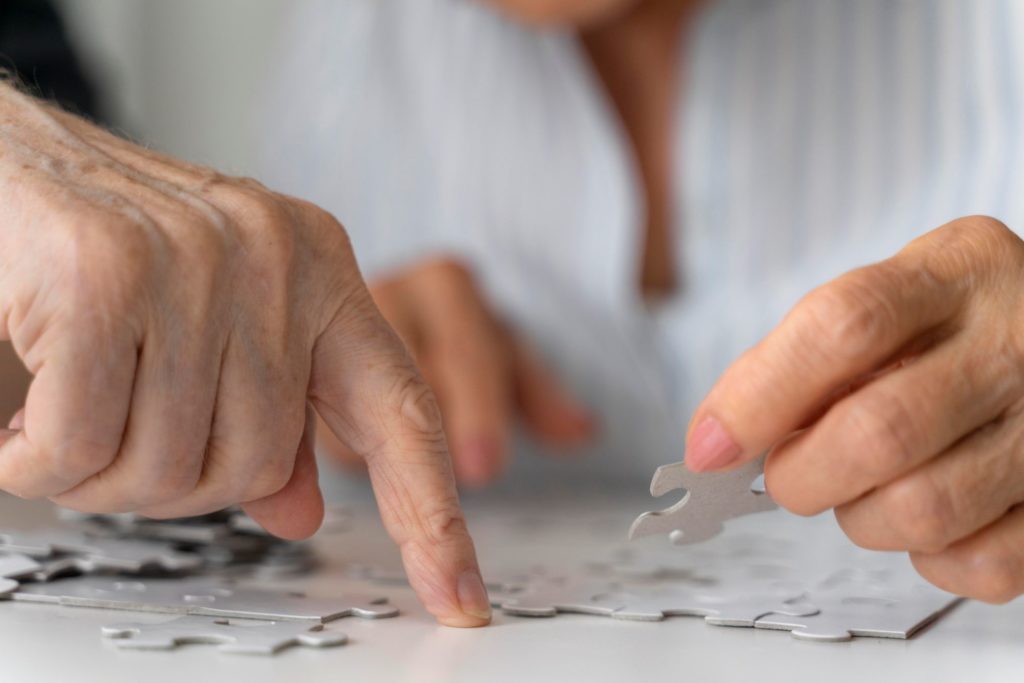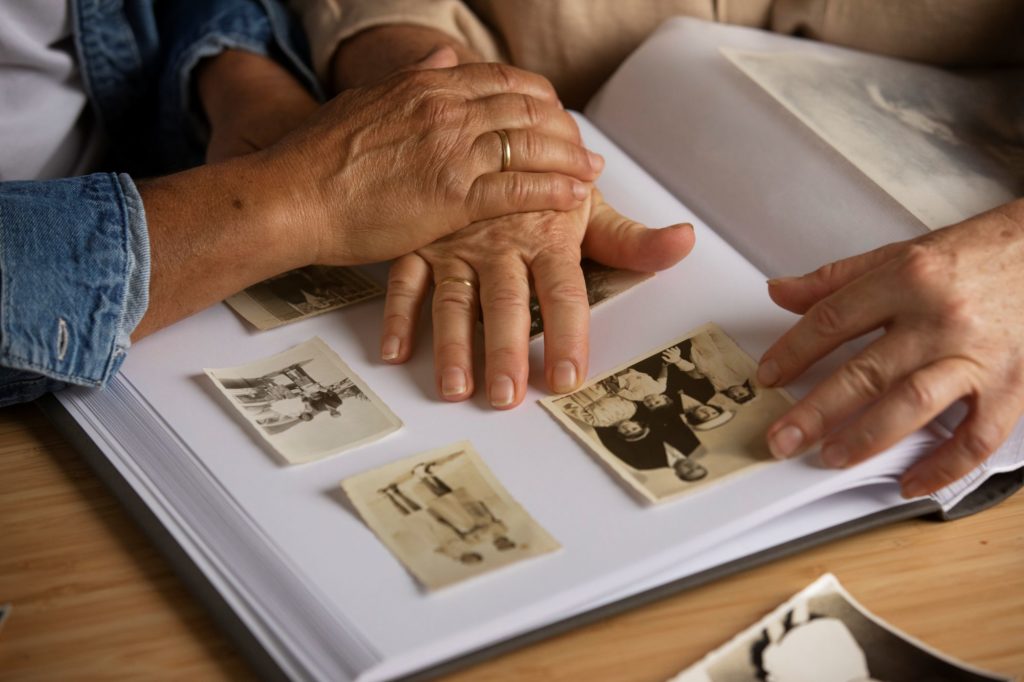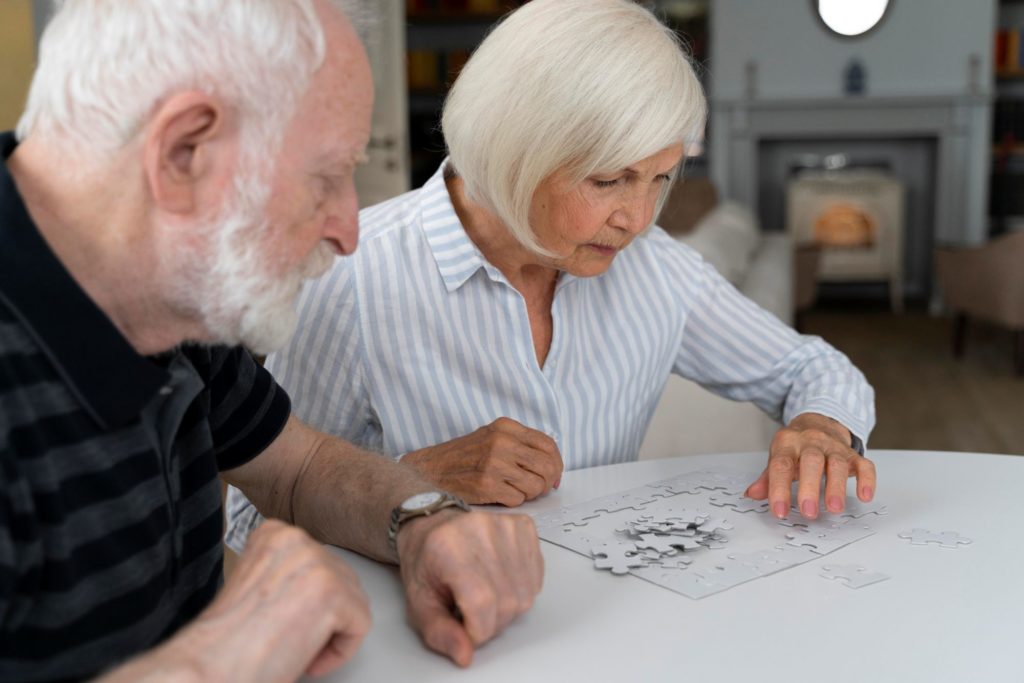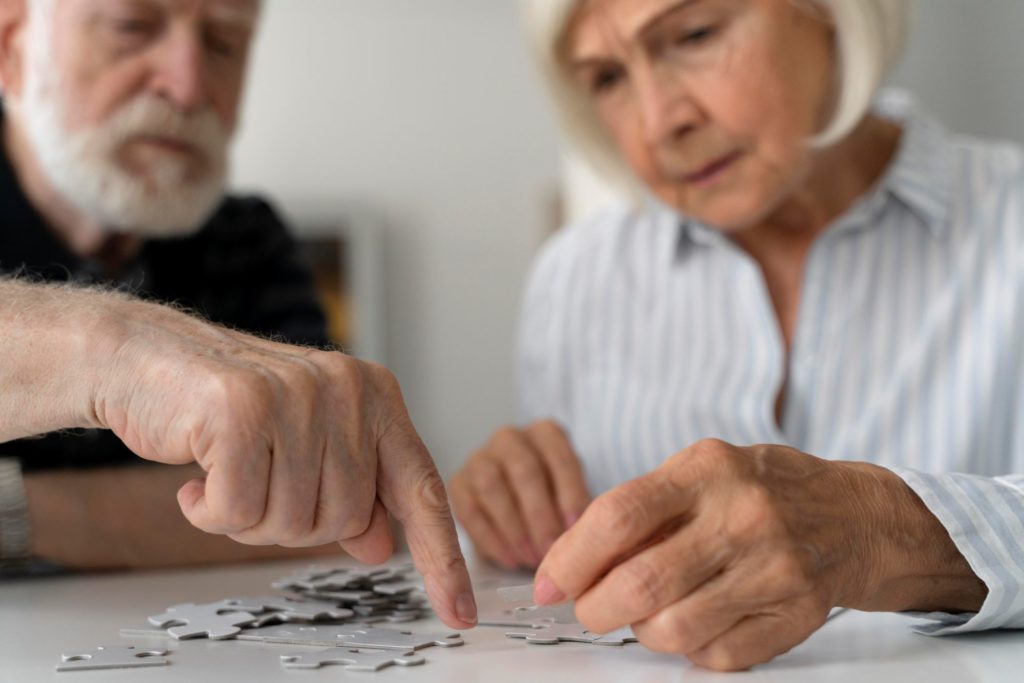“I watched my father, a sharp-minded man with incredible knowledge, lose pieces of his life and memory day by day. He stopped remembering, stopped being the person he was. All we could do was care for him with as much love as possible. He may not have remembered who we were, but we remembered who he was and what he meant to us”.
This reality affects millions of people worldwide who care for loved ones suffering from dementia, particularly Alzheimer’s disease. Each day brings new challenges—from communication difficulties to the need for constant supervision and support.
Caregivers often become silent heroes, putting their own lives second to ensure dignity and safety for those they love.
The psychological, practical and financial burden on caregivers is heavy and multifaceted, Dr. Paraskevi Sakka emphasised in her interview.
“The increased care demands of dementia patients affect caregivers’ health, impact their participation in social and professional activities, limit their free time, undermine their social standing and threaten their financial security,” she explained regarding the challenges families face.
Alzheimer’s disease is the most common form of dementia, representing approximately 60-70% of cases, and memory loss constitutes one of the greatest challenges of modern medicine and society. Science continues to research the causes and potential treatments for the disease.
While no definitive cure exists today, medications and non-pharmaceutical interventions can delay symptom progression and improve quality of life.
“What I would like to emphasise is that in recent years we have entered a new era of causal, increasingly effective treatments, such as monoclonal antibodies against beta-amyloid. The road to full implementation of these therapies is still long,” Dr. Sakka noted.
Dementia and Alzheimer’s affect not only the patient but also family and surrounding environment, as progressively more care and support is required.
Early diagnosis and proper management can help improve quality of life for both patients and their caregivers through pharmaceutical therapies, psychological support and appropriate activities that enhance cognitive and social functions.

Is it true that memory loss (dementia, Alzheimer’s) and other neurodegenerative conditions are now appearing at increasingly younger ages? If so, what causes this?
Alzheimer’s disease is the most common neurodegenerative disease, and 98% of sufferers are over 65 years old—they belong to the elderly population.
Dementia, with Alzheimer’s disease as its main form representing 60-70% of all cases, affects 5% of elderly individuals. Given the increased life expectancy today and in the future, the number of people with dementia is expected to increase dramatically.

We often use the words dementia and Alzheimer’s interchangeably. Are they the same condition or do they have differences?
The term dementia represents a condition, a set of symptoms. Alzheimer’s disease is the most common form and cause of dementia, responsible for 60-70% of cases.
There are other forms of dementia such as vascular dementia, frontotemporal dementias, dementia with Lewy bodies, as well as other frontotemporal types.
This is an issue that concerns families in a specific way. How do patients themselves experience their memory decline? Are they aware of what’s happening and where Alzheimer’s will lead them? How easy is it to manage such a painful situation?
Fifty percent of Alzheimer’s patients lack awareness of their cognitive decline, either for psychological defense reasons or because this lack of insight is a symptom of their disease. What is certain is that they need support to manage such a painful situation.
What are the symptoms of Alzheimer’s disease? When should someone be concerned and consult a specialist?
The disease’s symptoms initially involve decline in cognitive functions—memory, speech, orientation in space and time, calculation ability, visuospatial skills, among others.
As the disease progresses, behavioral disturbances appear and daily functionality decreases. Someone should consult a specialist doctor when their ability to function daily begins to decline.
Following up on the previous question, could you please tell us about the stages of disease progression?
There are three stages of Alzheimer’s disease progression. In the first stage, cognitive functions are impaired.
In the middle stage, cognitive decline continues, the patient’s functionality significantly decreases, and their autonomy becomes limited.
In the third stage, the patient cannot live independently and depends entirely on their caregivers.

After so many years of research, do we know what causes Alzheimer’s? Since much is written about this topic, if science cannot speak precisely about the causes, how will effective treatment be found?
Many mechanisms such as deposition of toxic beta-amyloid and tau protein in brain cells, synaptic dysfunction, oxidative stress and others have been implicated in Alzheimer’s disease pathogenesis.
However, the disease’s pathogenesis is clearly multifactorial and some pathogenetic mechanisms are not fully established.
What I would like to emphasise is that for the past three years we have entered a new era of causal, increasingly effective treatments such as monoclonal antibodies against beta-amyloid. The road to full implementation of these therapies is still long.
Could you please tell us what role heredity plays in whether someone will develop the disease?
The rare familial form of the disease represents less than 1% of all dementia cases, is inherited from generation to generation in an autosomal dominant manner, and manifests at young ages (for example, age 50, 40 or even 30 years).
The sporadic form concerns 99% of cases and appears in ages above 65 years. In this case, polymorphisms in several genes predispose to disease development. There are many predisposing genes for Alzheimer’s disease such as APOE, CLU, PICALM, CR1, among others.
Polymorphisms in these genes are not capable alone of causing the disease but must be combined with other factors such as aging, hormonal abnormalities, inflammation, brain trauma, high cholesterol levels, oxidative damage, etc.
Overall, the disease risk for first-degree relatives of people with Alzheimer’s disease is approximately three times greater than individuals without family history.
Therefore, if someone knows they have a predisposition to dementia, they should decide to limit other predisposing factors and follow a lifestyle that promotes brain health.
Is there a way to prevent Alzheimer’s? I ask this because while we read research saying that exercise, diet and many other things help, we see people who were careful and did everything they should have, yet still became ill.
Controlling risk factors and prevention through lifestyle changes remain our most effective weapons against the disease. There are many proven and modifiable risk factors for dementia, for many of which each of us bears some responsibility.
Risk factors include smoking, excessive alcohol consumption, lack of physical exercise and mental activities, lack of social contacts, head injuries and vascular risk factors such as diabetes, hypertension, increased cholesterol, smoking and obesity, as well as hearing loss and depression.
Other dementia risk factors depend on the state and I refer to air pollution, limited access to education, problematic mental health services.
There is a need for urgent awareness campaigns to reduce dementia risk. It’s important to note that there is effective prevention for dementia and Alzheimer’s disease. Forty-five percent of dementia cases can be prevented by controlling modifiable risk factors.

Heavy and multifaceted burden on caregivers
What are the biggest challenges faced by Alzheimer’s patients and their families? Is there adequate support from the state and society in countries like Cyprus and Greece?
The number of people with dementia is increasing rapidly, and simultaneously the number of their caregivers is increasing. The psychological, practical and financial burden on caregivers is heavy and multifaceted.
The increased care demands of dementia patients affect caregivers’ health, impact their participation in social and professional activities, limit their free time, undermine their social standing and threaten their financial security.
I will refer to Greece, about which I have extensive knowledge, and I will say that according to our Society’s online research, Greek caregivers of people with dementia are 75% women, 56% middle-aged, and care for the person an average of 40 hours per week.
The deterioration of caregivers’ mental health emerges as the most significant aspect of their burden, while proper caregiver education in practical daily patient care emerges as their primary need.
The needs of patients and caregivers can and should be met comprehensively, at all levels. In Greece, the non-profit Alzheimer organisations that exist in several cities play an important role in overall dementia management by offering non-pharmaceutical therapies to sufferers and education and support to caregivers.
What you say about caregivers is particularly interesting. Do you have data on approximately how many caregivers of dementia patients there are in Greece?
In Greece, 250,000 people suffer from dementia and 350,000 people from mild cognitive impairment, which is the precursor to dementia.
If we calculate that for each dementia patient, the lives of at least two caregivers—family members are significantly affected, the condition directly concerns more than 1.5 million Greek citizens.
These numbers are expected to increase dramatically in the future due to increased life expectancy.
In Cyprus, state structures as well as private facilities for Alzheimer’s patients are minimal. Is the same true in Greece?
In Greece, significant progress has been recorded in recent years and new structures and services for people with dementia and their caregivers have been established and operate: 28 day centers, 30 memory clinics, seven residential facilities, mobile units and others.
However, there are areas of the country not covered by any structure or service for dementia.
There has been a draft law ready since 2020 regarding the rights of people with dementia and their caregivers, submitted to the Ministry of Health with the goal of highlighting patients’ rights in the specific area of dementia, as they remain “invisible” and unclear in the general legislative framework of mental health.
The draft law also examines fundamental rights issues for people with dementia and their caregivers such as personal freedom, the right to movement, privacy protection including specific issues such as driving safety, living wills and issues of caregiver support by adequate social institutions.
This draft law is not being advanced to the Greek Parliament for voting despite promises from the authorities.
There is hope
What advice would you like to give to people showing symptoms of dementia and their families?
If you’re worried about your memory or someone close to you has noticed that you’re forgetting things, immediately consult a clinic and get examined.
Discuss your concerns with your doctor, because there are treatable conditions that cause memory problems such as depression, chronic infections, vitamin deficiencies, thyroid problems, brain tumors.
Dementia is not a normal part of aging. The benefits of early diagnosis are many. Timely and accurate diagnosis helps us to:
- Benefit from available pharmaceutical and non-pharmaceutical therapies
- Be properly informed about disease progression and available sources of help
- Plan our lives and make decisions about our future
- Maintain our quality of life with our loved ones
What I want to say in closing is that there is hope, there is care.
Read more:

